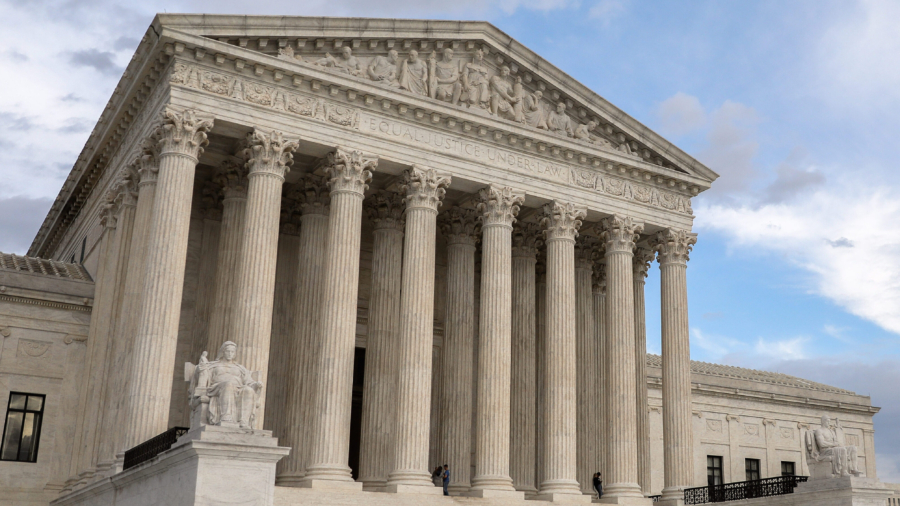The Supreme Court on Tuesday granted a Trump administration request to reinstate a rule requiring women to go in person to pick up abortion pills.
The nation’s top court voted 6-3 to remove a lower court’s preliminary injunction on the Food and Drug Administration rule that requires women to pick up the abortion medication mifepristone from a hospital, clinic, or medical office and to sign a disclosure form. Mifepristone, also known as Mifeprex, is usually taken together with the medication misoprostol in order to end pregnancies up to 10 weeks after conception.
Mifepristone is subject to distribution restrictions to ensure the safe use of the drugs, according to the FDA. The pill is only supplied directly to health care providers that meet certain qualifications, and they are required to ensure that the woman has access to medical facilities for emergency care. The provider must also review and sign an agreement form with the patient.
In July, a district court judge issued an order that suspended the FDA’s in-person requirement for the drug for the duration of the CCP (Chinese Communist Party) virus pandemic.
The American College of Obstetricians and Gynecologists and other groups sued the Trump administration to block the enforcement of the rule, arguing that it poses serious and unnecessary risks due to the virus.
The court ruled along ideological lines, with Chief Justice John Roberts writing a concurring opinion in granting to lift the lower court ruling. Roberts said that it is not about a woman’s right to access abortion, but rather whether the district court had properly ordered the FDA to waive its in-person requirements.
Roberts wrote that he did not think courts had the “background, competence, and expertise to assess public health” to substitute its own evaluation over that of experts.
“In light of those considerations, I do not see a sufficient basis here for the district court to compel the FDA to alter the regimen for medical abortion,” he wrote.
Meanwhile, Justice Sonia Sotomayor wrote a dissenting opinion saying that she believes the policy imposes “an unnecessary, unjustifiable, irrational, and undue burden on women seeking an abortion during the current pandemic.” Justice Elena Kagan joined in her dissent.
The mifepristone pill has been part of the national dialogue over abortion. Over the past year, many states have introduced and defended in court laws known as heartbeat bills that make it a crime to perform an abortion, except in a few circumstances, after a fetal heartbeat has been detected, which is generally at six weeks.
In September, Sen. Ted Cruz (R-Texas), 19 Republican senators, and 71 House Republicans wrote a letter to FDA Commissioner Stephen Hahn asking the department to ban the use of the pill.
They argued that the abortion pill has been used to terminate the lives of an estimated 3.7 million unborn babies, caused 24 maternal deaths, and resulted in nearly 4,200 adverse reactions in women, including bleeding, extreme abdominal pain, and life-threatening infections, the lawmakers wrote (pdf).
The FDA fact sheet also reported such adverse side effects.
The case at the Supreme Court is not the only legal challenge against the FDA rule. The American Civil Liberties Union (ACLU) is pushing for courts to permanently remove the restrictions, which they say “impose significant burdens on women seeking abortion with no medical basis.”
From The Epoch Times


